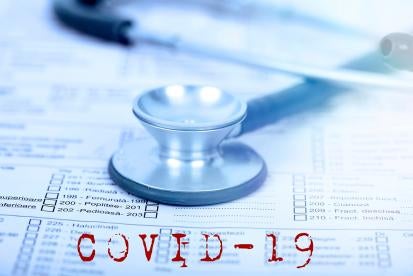On April 29, 2020, the Department of Labor ("DOL"), in conjunction with the Department of Treasury and the Internal Revenue Service, issued a final rule that extends certain deadlines under ERISA and the Internal Revenue Code applicable to welfare and retirement plans, and their participants, that have been impacted by the COVID-19 outbreak (the "Final Rule"). The DOL also published EBSA Disaster Relief Notice 2020-01 (the “Relief Notice”) announcing additional deadline extensions for the furnishing of certain notices, disclosures, and other documents required under Title I of ERISA, and outlining its enforcement policies for certain COVID-19 outbreak related delays.
This client advisory summarizes the Final Rule and the Relief Notice. Plan sponsors should become familiar with this relief and ensure that it is being properly incorporated into their administrative practices during the relevant periods, discussed below.
Final Rule
Under the Final Rule, ERISA-governed welfare and retirement plans are required to disregard the period from March 1, 2020 until 60 days after the announced end of the national emergency declared by President Trump as a result of the COVID-19 outbreak (or such other date announced in a future notice) (the "National Emergency") in determining certain deadlines and timeframes applicable to plan participants, beneficiaries, qualified beneficiaries, or claimants. This additional period is referred to as the "Outbreak Period."
In other words, under the Final Rule, in determining the following deadlines and timeframes, the Outbreak Period is effectively added to the standard period that would otherwise apply:
HIPAA
-
The 30-day or 60-day, as applicable, period to request special enrollment under the HIPAA portability rules.
ERISA Claims Procedures
-
The date within which individuals may file a benefit claim, an appeal of an adverse benefit determination, or a request for an external review after receipt of an adverse benefit determination.
-
The date within which a claimant may file information to perfect a request for external review upon a finding that the request was not complete.
COBRA
-
The 60-day election period for COBRA continuation coverage.
-
The date for making COBRA premium payments pursuant to ERISA and the Code. The date for individuals to notify the plan of a qualifying event or determination of disability that may permit for the extension of the COBRA coverage period.
-
Separately, with respect to group health plans, and their sponsors and administrators, the Outbreak Period will be disregarded when determining the date for providing a COBRA election notice.
Separately, with respect to group health plans, and their sponsors and administrators, the Outbreak Period will be disregarded when determining the date for providing a COBRA election notice.
Relief Notice
Under the Relief Notice, the DOL provides relief for plans and plan fiduciaries who fail to timely furnish a notice, disclosure or other document required under Title I of ERISA that should have been furnished during the Outbreak Period. To qualify for this relief, the plan and responsible fiduciary act must act in "good faith" and furnish the notice, disclosure, or document as soon as administratively practicable under the circumstances. The Relief Notice does not specifically define what acts will constitute good faith, but references the use of electronic alternative means of communicating with plan participants and beneficiaries who the plan fiduciary reasonably believes have effective access to electronic means of communication (e.g., email, text messages, and continuous access websites) as an example.
Additionally, in handling any delay in furnishing documentation arising from the COVID-19 outbreak, plans and plan fiduciaries should act reasonably, prudently, and in the interest of the covered workers and their families. The DOL recommends that plan fiduciaries make reasonable accommodations to prevent the loss of benefits or undue delay in payments in such cases and attempt to minimize the possibility of individuals losing benefits because of a failure to comply with any pre-established ERISA timeframes. In instances where it is not possible to achieve full and timely compliance with ERISA requirements, the DOL indicates that its enforcement approach will emphasize compliance assistance and include grace periods and other relief where appropriate.
In addition to these general principles, the DOL provides enforcement relief in the following specific instances:
Plan Loans and Distributions
The DOL will not treat a failure to follow an ERISA- governed retirement plan's terms regarding procedural requirements for loans and distributions as a failure under ERISA if: (1) that failure is solely attributable to the COVID-19 outbreak, (2) the plan administrator made a good-faith diligent effort to comply with those procedural requirements, and (3) the plan administrator makes a reasonable attempt to correct any procedural deficiencies (e.g., assembling missing documentation) as soon as administratively practicable. However, this relief only covers procedural requirements within the authority of the DOL, and not, for example, the Department of Treasury (e.g., spousal consent requirements). The Relief Notice also confirms that the DOL will not treat as an ERISA violation either the making of a plan loan to a qualified individual, or delays of a qualified individual making a plan loan repayment, in compliance with the CARES Act provisions and any related guidance for the increased loan limits or repayment delays, respectively. The DOL will also treat a plan as being operated in accordance with its terms with respect to any retirement plan CARES Act relief provided that the plan is amended by the deadline required under the CARES Act (generally December 31, 2022 for calendar year-end plans).
Participant Contributions and Loan Repayments
Where an employer or service provider is unable to timely forward participant deferrals and/or loan repayments to an ERISA-governed retirement plan during the Outbreak Period, the DOL will not, solely on the basis of a failure attributable to the COVID-19 outbreak, take enforcement action with respect to a temporary delay. However, the employer or service providers must still act reasonably, prudently, and in the interest of employees to comply as soon as administratively practicable under the circumstances.
Blackout Notices
The Relief Notice provides that the general relief for failure to timely furnish notices as a result of the COVID-19 outbreak, discussed above, also applies to the advance blackout notice requirements under ERISA as well as to notices required to be provided after a blackout period begins. For this relief, the DOL will not require a written determination by the plan fiduciary that the delay resulted from events beyond the plan administrator's reasonable control, which is generally required for similar relief under current blackout notice rules.
Form 5500 and Form M-1 Filing Relief
The IRS previously provided that Form 5500 filings that were due to be filed on or after April 1, 2020 and before July 15, 2020, have an automatic extended filing due date of July 15, 2020. The Relief Notice provides that Form M-1 filings required for multiple employer welfare arrangements and certain entities claiming exception are provided filing relief for the same period of time.
Application to Non-Federal Government Plans
Both the Final Rule and Relief Notice indicate that the Department of Health and Human Services ("HHS") has reviewed and concurs with the guidance thereunder. HHS intends to adopt a temporary, measured enforcement policy to extend similar timeframes applicable to non-Federal governmental group



 i
i


